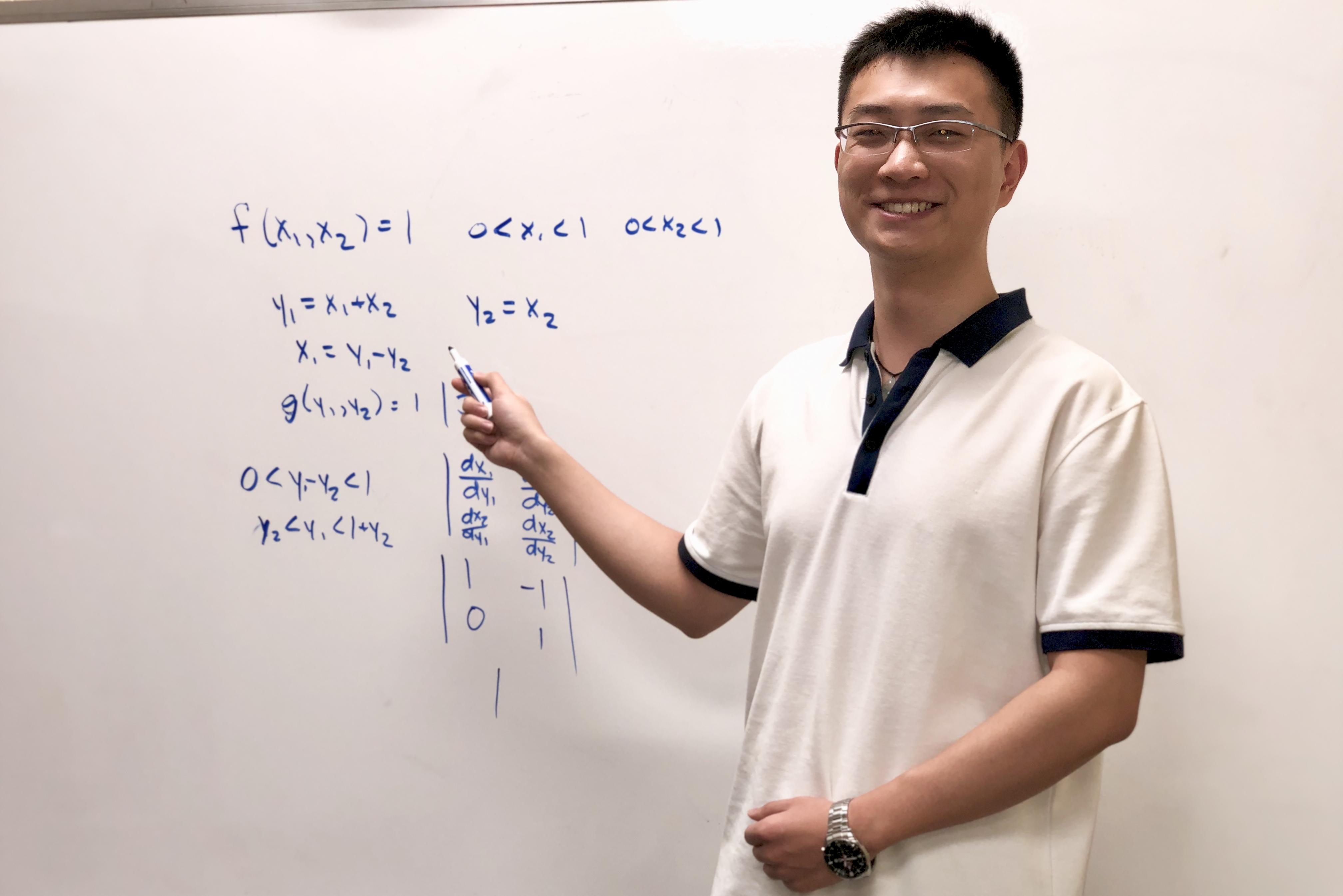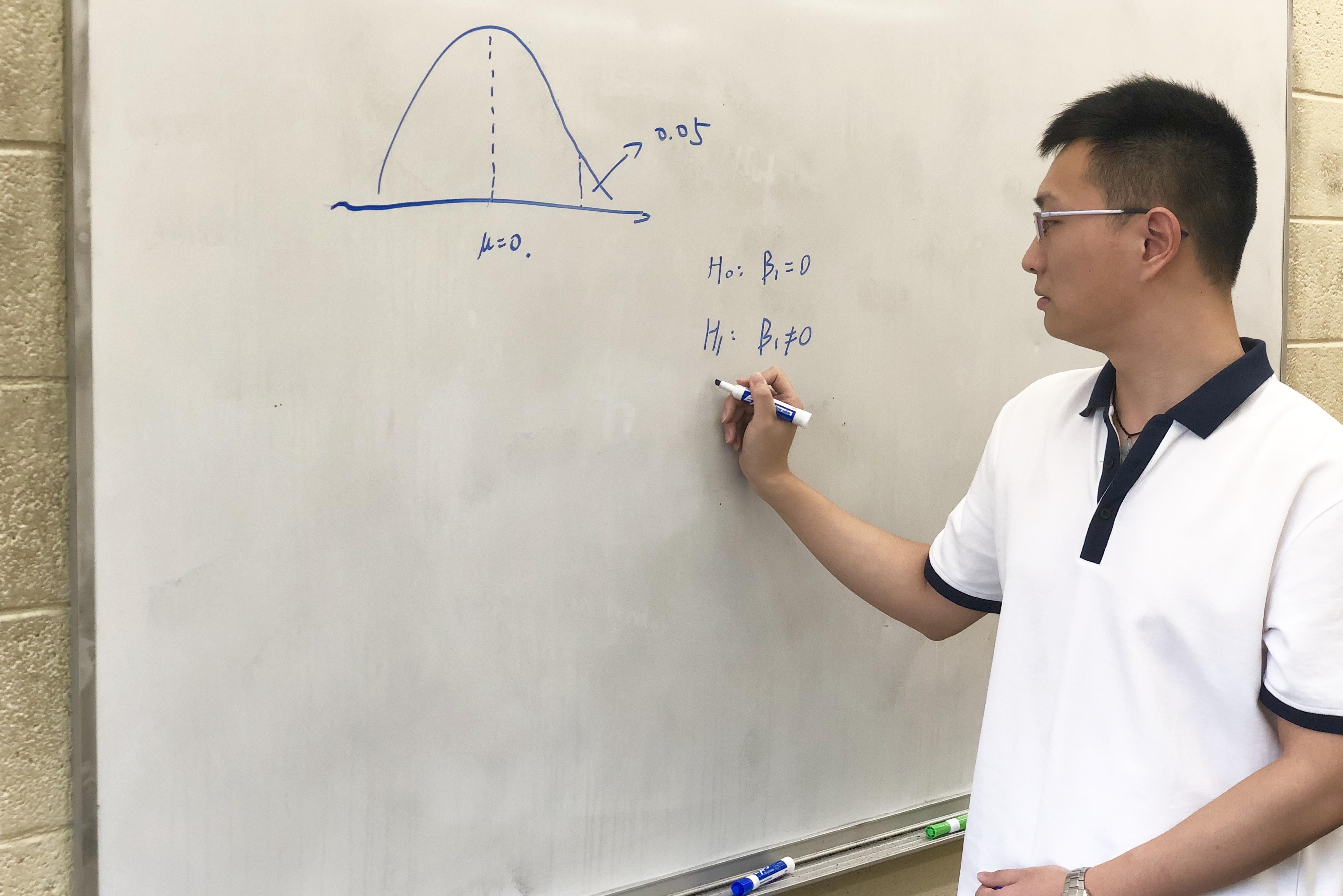Mao Li’19 Passes Actuarial Science Exams

Mao Li ’19, Actuarial Science major, recently passed the Short-term Actuarial Mathematics (STAM) exam from Society of Actuaries (SOA), representing his third exam completed upon graduation. STAM is a new course offered at Arcadia, which was developed after the curriculum change in Fall 2018 to coincide with the University earning Advanced Curriculum Status from SOA. This course consists of many emerging and challenging actuarial modeling techniques. Despite the challenging material of the new course, Mao successfully passed the STAM exam on his first attempt. Upon graduation, Mao plans to attend the University of Edinburgh, where he was admitted to the Master’s in Financial Mathematics program.
In a Q&A with Li, he discusses his experiences at Arcadia and tips for a successful exam experience.
Q1: Tell us about your experience at Arcadia University. What has been your experience with the actuarial science program at your school?
I really like the atmosphere at Arcadia University. Our class size is not large, max 20, so it is easy for us to interact with the instructors. Because of the small class size, the professors always provide prompt help in understanding the concepts. It feels extremely helpful that my questions can be immediately handled whenever I raise my hand in class.
I believe I am lucky that Arcadia prepares us for four exams – P, FM, STAM and SRM. The atmosphere in class is nurturing and guidance is provided as needed, which I think plays an important role in my completion of the exams. Beyond theories, we are also exposed to real world problems via Capstone projects. I worked on analyzing US National Healthcare expenditure last semester, where I applied theory to practice and improved my data analysis and R programming skills. Many students also attend conferences where they get to present their research projects to share their work, review other people’s work, and practice their presentation skills.
In addition, I appreciate the fact that our department often invites local actuaries to campus to share with us their experience as an actuary as well as give us tips on exam preparations. We also attend the Actuaries Club of Philadelphia annual meeting where we meet local actuaries and listen to professionalism presentations.
Q2: What influenced you to pursue an actuarial science program?

Since a young age, I have been enamored with numbers. As a child, I was inspired by my father, who is also enthusiastic about math and often tells interesting math stories. As a result of his influence I have become a strong Math fan and believe firmly that math is beautiful. Without a doubt, I chose math as my major when I started my education at Jiangsu University. As soon as I transferred to Arcadia University, I learned from my professors about the job prospects as an actuary. I have been deeply attracted by the nature of the job. Seeing all kinds of mathematical models which I’ve learned in school being applied to solve real-life problems reinforces my belief of the beauty of math. Beyond that, actuarial science is a well-respected and rewarding profession. Therefore, I chose actuarial science as my major, and I have been enjoying it.
Q3: What has been most challenging about studying actuarial science?
As an international student, language is a major barrier for me. However, I have found that the secret to improving my English is to use it all day and every day. I like to place myself in an English-speaking environment and sometimes I have to force myself outside my comfort zone to use the language whenever I can. In addition, I make use of all sorts of programs at Arcadia that aim to assist international students with integrating into American culture. For instance, each one of us is paired up with a local student from whom we could always obtain advice on adapting to college life at Arcadia. Furthermore, I actively participate in many cultural exchange social activities. I have found that this has helped me overcome the barrier substantially, thus resulting in a positive impact on my academic performance.
Another challenge has been understanding actuarial approaches in the context of business insights. It has not always been straightforward to relate textbook knowledge to reality. But we have benefited a lot from the actuaries’ lectures our department arranges, in the sense that we are able to connect what we learn to what is being done in practice.
Q4: Now that you have passed three Society of Actuaries exams, what advice would you give to other students on preparing for the exams?
I have found that lectures at Arcadia really provide a major help on my exam preparations. For instance, I took the Short-Term Actuarial Mathematics (STAM) course instructed by Professor Pogrebivsky last fall. This course offered me a lot of essential knowledge needed to pass the STAM exam. I was also fascinated by all types of mathematical models used in actuarial applications which were taught in that course. I really appreciate the teaching style adopted by my instructor, Professor Pogrebivsky. She is an experienced actuary herself and is at the same time a very kind and responsible professor. Her explanations of theories are closely related to her own professional experience. In this way, my business understanding and awareness have been raised, which in turn advanced my understanding of the concepts. I always get constructive feedback from the homework she corrects, which allows me to address my weaknesses and focus on studying those topics in advance of exams.
To other candidates, except for having an extremely helpful instructor, my advice is “practice, practice, practice”. Practicing is a direct route to master all techniques and modeling methods and improve your proficiency.
Q5: What are your future aspirations or career plans?
In the short run, I want to pass the SRM exam. My ultimate goal is to become an actuary and qualify as a Fellow of the Society of Actuaries (FSA).


